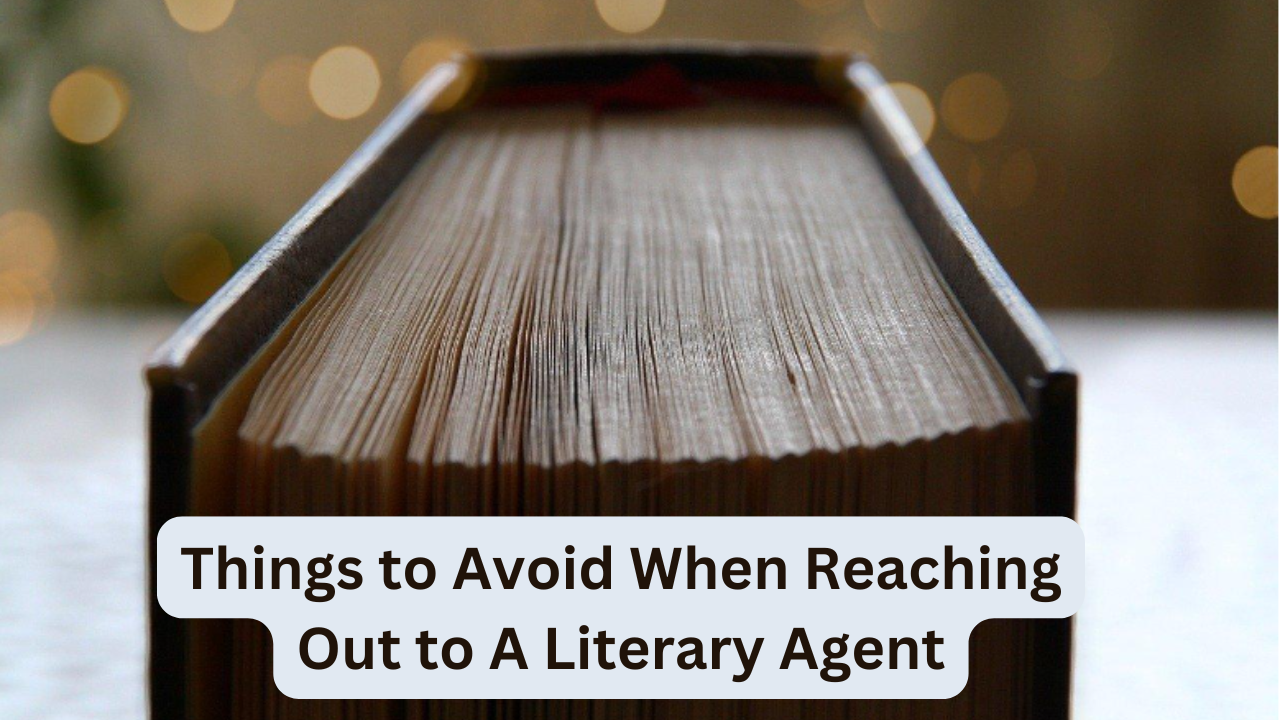Things to Avoid When Reaching Out to A Literary Agent
If this is your first attempt at getting your book published, then there are a couple of mistakes that you must avoid when trying to get a literary agent to agree to promote your book. So, without further ado, let us jump straight to the list of mistakes that you must avoid at all costs.
Read on to learn more.
Querying the Wrong Literary Agent
The first mistake that many aspiring writers make is the mistake of reaching out to the wrong literary agent. You might try to connect with the literary agent or publisher. There are a couple of reasons why potential writers might do this when a publication house has open submissions, but they don’t publish the genre that the writer’s book is about.
The thing is that sometimes aspiring writers simply don’t read the submission guidelines at all. However, some writers who read the submission guidelines still query the wrong agent while believing that maybe when the agents read their work – they will still publish it.
Know the Agent
If you are trying to get published for the first time, you should be mindful of the fact that agents and publishers have their respective specialties, which means that they focus on certain genres. If you send your work to a literary agent who has explicitly mentioned in their guidelines that they aren’t interested in that kind of work – you will be getting nowhere but merely wasting your time and their time.
However, if you look at it, you will see that reaching out to the wrong literary agent is more of a waste of your time because it is very quick for an agent or editor to refuse you.
As an aspiring writer, you don’t have time to waste. So don’t waste your time sending your queries to the agents or publishers who haven’t asked for them.
Not Leveraging the Subject Line
Now, before we continue, we recommend you check out these query letter templates so that you have a general understanding of what is expected of you when jotting down a query letter. On that note, if you send out emails, you should avoid the mistake of wasting the subject line.
Think of the subject line of your email in the following terms: the subject line of your email is your first opportunity to pique the interest of an agent or an editor. If you don’t leverage the subject line of your email to pique the interest of the agent, you will be essentially dealing with a missed opportunity.
Know How to Write the Subject Line
We have already established that you should know how to leverage the subject line in a way that piques the interest of literary agents or publishers. The next part is to know how to write the subject line. You have about sixty characters to work with when it comes to the subject line.
This aspect indicates that you don’t have to go too much longer than that. In your subject line, you should follow the following sequence:
Query, (Book Title), (Genre), (Word Count)
Yes – you read this right. You should be focusing on these four things in your subject line to get the agents or publishers interested. The reason why you should include the genre and the word count in your subject line is so that the agents know that this is something they are interested in.
Starting with the Wrong Phrase
A crucial mistake to avoid when writing a query letter and reaching out to agents and publishers is the use of “dear sir.” Believe us when we tell you that countless agents and publishers receive emails like these, and the thing is that it feels pretty weird to be misgendered.
Now, this might be something like classic old-time advice about writing “sir” or “sirs” when you don’t know who is reading your letter – but you must keep in mind that it is outdated advice. The truth is that most agents and publishers are women. Think about what they would feel if they were to receive emails starting with the wrong gender.
The solution to avoid this weird mistake is to do your research and understand who you are reaching out to and what the name and gender of the literary agent are. Keep in mind that the agent is someone with whom you will have a close relationship.
When it comes to the publishing house, when you have done your research, and you don’t know who will be reading your email, then the safest option is to start the letter with “dear editor.”
Addressing the Wrong Person
When writing a query letter, you should avoid addressing the wrong person or company wrongly. Suppose you are sending out batches of emails or even a few queries at a time – you might be thinking that you are saving time.
Now, think about the bad impression that you would make if you were to get the query letters tangled. The recipients of your email won’t be impressed, which is why you should keep in mind that the biggest mistakes out there are actually the easiest ones to make.
So, check what you are sending out and then check again one more time to be absolutely sure that you are doing the right thing.
Not Being Clear About the Book
Many aspiring writers who plan to reach out to literary agents also make the mistake of not being clear about what the book is about. You should know that the job of the query letter is to pitch your book to the literary agent, which means that the whole point of the query letter is to tell the literary agent or publisher what your book is about.
So, keep in mind that when a literary agent reads your query letter, they want to understand who the main characters are, what their goals are, and what the main conflict is in the book. So, make sure to touch all these important points when jotting down a query letter for literary agents.



No Comment! Be the first one.